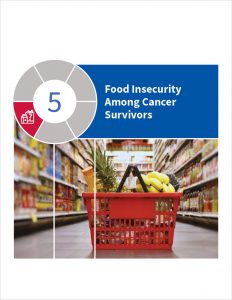This informative, six-part series is appropriate for primary care and oncology healthcare providers working with cancer survivors during treatment, immediately after treatment, or during long-term survivorship.
Compendium of the Entire Nutrition, Physical Activity, Body Weight, and Cancer Survivorship Series
This six-part series provides healthcare teams with information about nutrition, physical activity, and body weight for cancer survivors. It also identifies helpful resources for cancer survivors.
This program meets the Survivorship Program Standard 4.8 requirements from the Commission on Cancer (CoC), American College of Surgeons. As part of CoC standard 4.8, the survivorship program team determines a list of services and programs that address the needs of cancer survivors, which may include seminars for survivors, and which is included in this toolkit.
Physical Activity for Cancer Survivors
Research strongly suggests that exercise during treatment is safe, feasible, fatigue-reducing, and can improve multiple aspects of quality of life. Studies have shown that exercise during treatment improves multiple post-treatment effects on bone health, muscle strength, and other quality of life measures.







